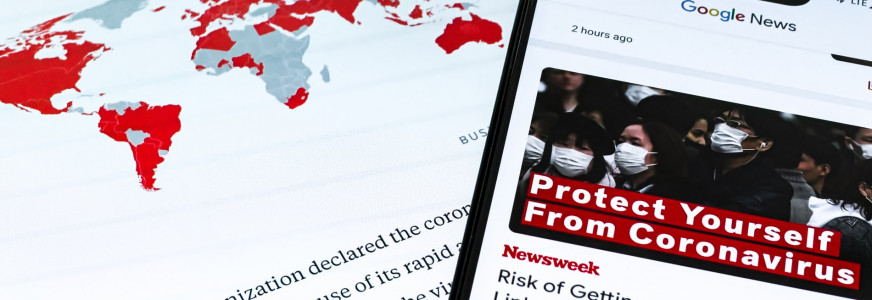Corporate Responsibility Update nr. 9, 22
Beste lezer,
Hierbij de laatste CR update van dit jaar.
Wij wensen je fijne kerstdagen en gezond 2023!
Modint team
In the media
- Pakistan finally announces International Accord workplace safety program
- Best of 2022: Cotton Resources & Insights
- De toekomst is het doel: De Green Fashion Beurs INNATEX en duurzaamheid als businessmodel
- De kledingindustrie: upcycling en het merkenrecht
- Swedish NGO calls for bolder EU textile strategy
- Verduurzaming in de mode-industrie: acht inspanningen van november 2022
- How prepared are brands for the incoming EU Green Claims Proposal
- Fashion's growth is surpassing sustainability efforts, says report
- AAFA ramps up calls for digital product labels
- EU States Reach Deal on ‘Due Diligence’ Rules
In de media
Pakistan finally announces International Accord workplace safety program
After a decade-long push towards safer garment factory in Pakistan, the International Accord was finally announced on Wednesday, cheered on by 187 brand signatories, Pakistani unions and NGO witness signatories. The new agreement is modelled on the Bangladesh Accord, which was signed after the 2013 Rana Plaza factory collapse, writes FashionUnited.
Best of 2022: Cotton Resources & Insights
Are you up to date on all the exciting developments in cotton? Click here to read the Top 5 CottonWorks™ news articles from 2022 to peruse as prepared for another dynamic year in 2023.
De toekomst is het doel: De Green Fashion Beurs INNATEX en duurzaamheid als businessmodel
Green fashion is niet alleen klimaat- en milieuvriendelijk, solidair, sociaal en divers, maar is ook de toekomst. Onder het motto "One Goal - Endless Styles", vindt van 21 t/m 23 januari 2023 alweer de 51e internationale vakbeurs voor duurzaam textiel plaats. In een interview spreekt beursdirecteur Alexander Hitzel over duurzaamheid als een toekomstgericht businessmodel, evenals over nieuwe allianties en trends, schrijft FashionUnited.
De kledingindustrie: upcycling en het merkenrecht
Steeds vaker is in het nieuws te lezen dat de kledingindustrie, met name fast fashion, schadelijk is voor het milieu. In een poging om duurzamer te zijn wordt steeds meer aan upcycling gedaan. Is upcycling door een derde merkenrechtelijk gezien eigenlijk wel toegestaan? Vraagt Lorena van den Berg, advocaat merkenrecht bij Dirkzwager zich af. Lees meer>>
Swedish NGO calls for bolder EU textile strategy
A Swedish industry authority has published a position paper which calls on the EU’s Strategy for Sustainable and Circular Textiles to go further if it’s to successfully decarbonise the sector. The Sustainable Fashion Academy (SFA) and the Swedish Textile Initiative for Climate Action (STICA) which is coordinated by the former, welcome the goals of the strategy but believe the industry and its stakeholders must respond “quickly, adequately and ambitiously” to the climate crisis. The Nordic organisation has outlined recommendations it hopes European authorities will consider, writes Eco-Textile News (notice you may need a login to read the complete article).
Verduurzaming in de mode-industrie: acht inspanningen van november 2022
Maandelijks selecteert FashionUnited een aantal verduuzamingsinspanningen uit de mode-industrie in binnen- en buitenland. Vandaag: acht nieuwtjes uit november. Lees ze hier.
How prepared are brands for the incoming EU Green Claims Proposal?
The publication of the EU’s Substantiating Green Claims Proposal is imminent, but how prepared are clothing brands for a new law that will dictate the terms of the sustainability claims they make? Industry veteran, Dalena White, shares her thoughts with Just Style.sustainability cost textile project consumer green claims, sustainably, regenerative, green claims, ETI, Creagh, SAC claims change collaboration sustainability Aii programme, apparel, circularity
The EU’s Green Claims Proposal was in fact scheduled to be published earlier this week, shortly after Just-Style’s chat with White, but it was postponed at the last minute. One would imagine the fashion industry breathed a huge sigh of relief about this – albeit temporary – following the backlash faced by the highly respected Higg Index over the use of consumer-facing claims deemed to be “misleading”, writes Just-style.com (notice you may need a login to read the complete article).
Fashion's growth is surpassing sustainability efforts, says report
Growth in the fashion industry is hampering sustainability targets as environmental impact from brands, retailers and manufacturers remains high. Current reductions in carbon footprints, water usage and embracing circular businesses is far slower than the rate of growth. The UK Government has announced policies and proposals to decarbonise all sectors of the UK economy to meet its binding 2050 net zero target, and there is an increasing focus on the need to reduce consumption-based emissions.
A new report published by climate action NGO, WRAP, called the Textiles 2030 Annual Progress Report 2021/22, shows more than 62 percent of the UK’s clothing market, including retailers and producers, have signed up to its programme to reduce their impact. WRAP has introduced a tried and tested tool using existing product data to calculate carbon and water impacts and suggest strategies for improvement, reports FashionUnited. Read more>>
AAFA ramps up calls for digital product labels
The American Apparel & Footwear Association (AAFA) trade body is ramping up its call for the US to allow brands to replace lengthy care labels with digital QR codes to share product and sustainability information with consumers and recyclers, writes Eco-Textile News (notice you may need a login to read the complete article).
EU States Reach Deal on ‘Due Diligence’ Rules
European Union member states on Thursday reached a deal on rules that would force large companies to check whether their suppliers use slave or child labour, or pollute the environment, but with an optional exemption for financial services. Known as corporate sustainability due diligence, the rules were proposed by the European Commission earlier this year and would be applied to around 13,000 large companies, requiring them not just to identify impacts but also take measures to mitigate or end them. It is part of a package of EU “green deal” measures that includes separate sustainability disclosure requirements on companies as well as the financial sector, and on asset managers, writes Reuters. Read more.

